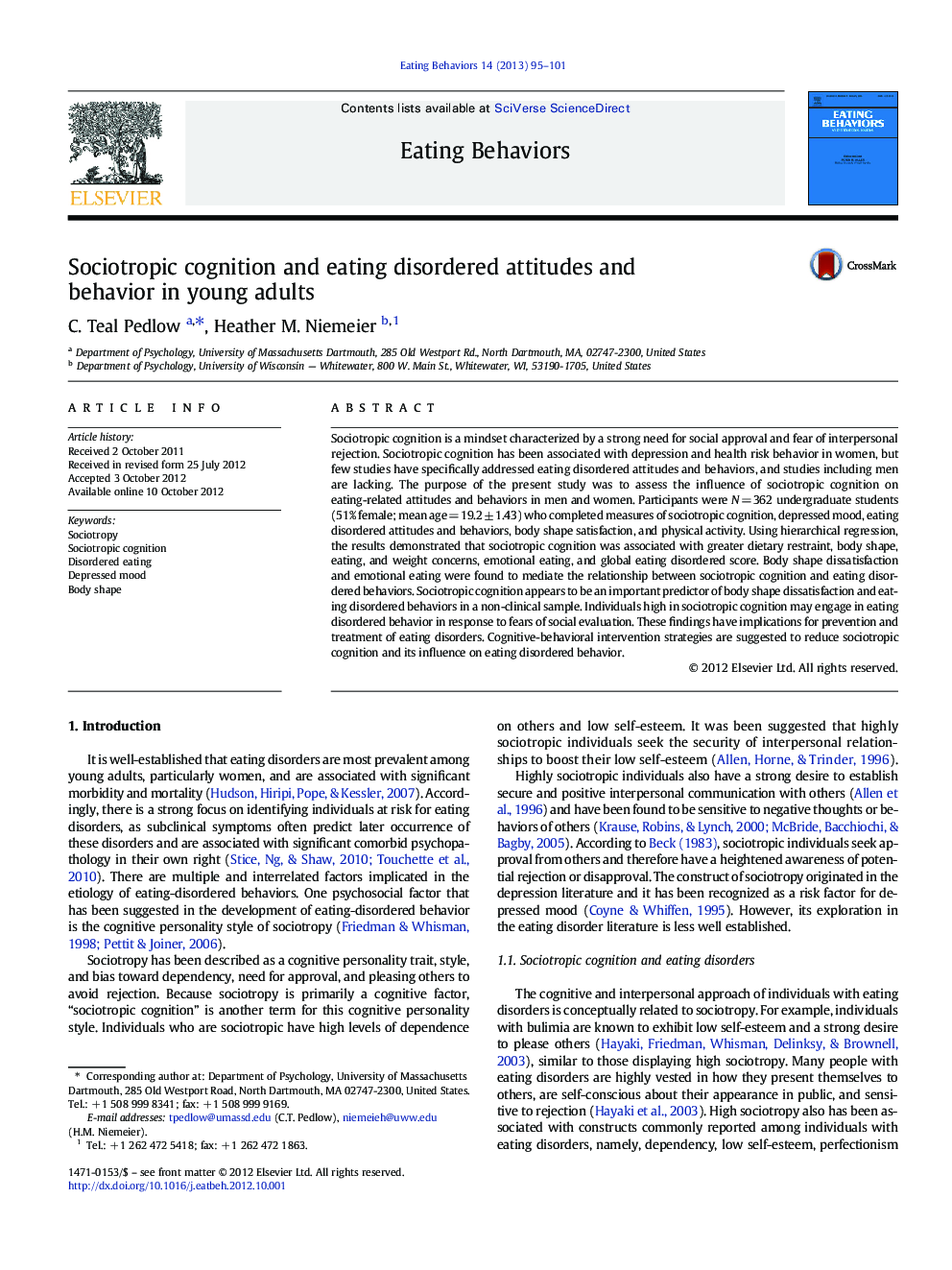| کد مقاله | کد نشریه | سال انتشار | مقاله انگلیسی | نسخه تمام متن |
|---|---|---|---|---|
| 906446 | 917006 | 2013 | 7 صفحه PDF | دانلود رایگان |

Sociotropic cognition is a mindset characterized by a strong need for social approval and fear of interpersonal rejection. Sociotropic cognition has been associated with depression and health risk behavior in women, but few studies have specifically addressed eating disordered attitudes and behaviors, and studies including men are lacking. The purpose of the present study was to assess the influence of sociotropic cognition on eating-related attitudes and behaviors in men and women. Participants were N = 362 undergraduate students (51% female; mean age = 19.2 ± 1.43) who completed measures of sociotropic cognition, depressed mood, eating disordered attitudes and behaviors, body shape satisfaction, and physical activity. Using hierarchical regression, the results demonstrated that sociotropic cognition was associated with greater dietary restraint, body shape, eating, and weight concerns, emotional eating, and global eating disordered score. Body shape dissatisfaction and emotional eating were found to mediate the relationship between sociotropic cognition and eating disordered behaviors. Sociotropic cognition appears to be an important predictor of body shape dissatisfaction and eating disordered behaviors in a non-clinical sample. Individuals high in sociotropic cognition may engage in eating disordered behavior in response to fears of social evaluation. These findings have implications for prevention and treatment of eating disorders. Cognitive-behavioral intervention strategies are suggested to reduce sociotropic cognition and its influence on eating disordered behavior.
► Sociotropic cognition is a mindset characterized by a strong need for social approval.
► Sociotropic cognition predicted greater dietary restraint and emotional eating.
► Sociotropic cognition predicted more concerns about body shape, eating, and weight.
► Depressed mood less relevant to eating disorder attitudes and behaviors
► Demonstrates that sociotropic cognition is relevant for males and eating disorders
Journal: Eating Behaviors - Volume 14, Issue 2, April 2013, Pages 95–101